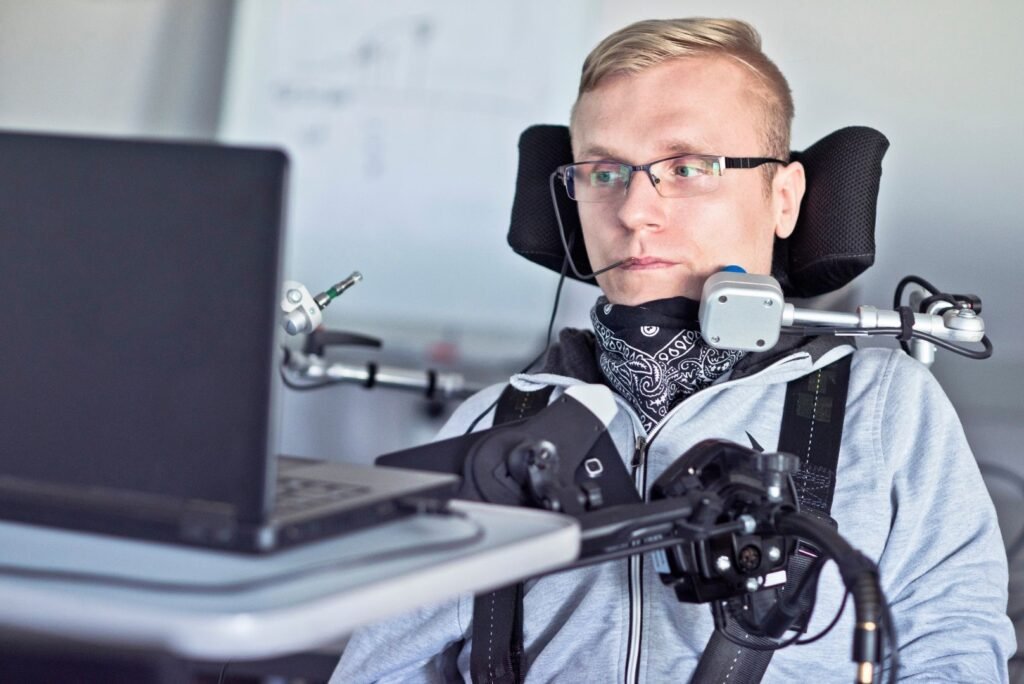Introduction
Disability, in the Australian context, encompasses a wide range of physical, intellectual, and sensory impairments that can significantly impact an individual’s daily life. Understanding eligibility for support services and benefits is crucial for those affected, as it enables them to access necessary resources and assistance. At Sympa Care, we are committed to helping individuals navigate the disability landscape and find the support they need through our Melbourne disability services.
Legal Definition of Disability in Australia
The Disability Discrimination Act 1992 (DDA) provides a broad definition of disability. According to the DDA, disability is not just about medical diagnoses but also how impairments interact with societal barriers. This holistic view ensures that a wide range of conditions are recognised and supported, promoting equality and inclusivity for all individuals with disabilities. Our Melbourne disability services are designed to align with these definitions and provide comprehensive support.
Types of Conditions Recognized as Disabilities
Physical Disabilities
Physical disabilities can include mobility impairments, chronic pain, and visual or hearing impairments. These conditions can significantly impact daily life, from moving around to performing basic tasks. Support for individuals with physical disabilities often involves mobility aids, accessible infrastructure, and assistance with daily activities, all of which are integral parts of our services.
Intellectual Disabilities
Intellectual disabilities vary in severity and can affect cognitive functioning and adaptive behaviours. Individuals with intellectual disabilities may require support to live fulfilling lives, including educational programs, vocational training, and personalised care plans. Sympa Care offers tailored services to meet these needs.
Mental Health Conditions
Mental health conditions such as depression, anxiety, bipolar disorder, and schizophrenia are recognised disabilities. Despite the stigma surrounding mental health, it’s essential to understand and support individuals facing these challenges. Mental health services, therapy, and medication management are critical components of support, all available through our services.
Neurological Conditions
Neurological conditions include epilepsy, Parkinson’s disease, multiple sclerosis, and autism spectrum disorder. These conditions can affect cognitive function, movement, and behaviour, necessitating comprehensive support plans that may include medical treatment, therapy, and specialised educational programs. Our services encompass all these aspects to provide holistic care.
Sensory Disabilities
Sensory disabilities encompass deafness, blindness, and deafblindness. Individuals with sensory disabilities face unique challenges in communication and mobility. Support services such as sign language interpreters, braille resources, and assistive technology play a vital role in enhancing their quality of life. Sympa Care ensures that these supports are readily available.
Acquired Brain Injuries
Acquired brain injuries can result from accidents, strokes, or other incidents, affecting physical and cognitive abilities. The impact of brain injuries varies widely, and support may include rehabilitation programs, physical therapy, and cognitive behavioural therapy to help individuals regain independence. Our services provide comprehensive support for those recovering from brain injuries.
How Disability is Assessed
There is no single test or assessment for disability. Healthcare professionals, government agencies, and support organisations assess disability based on medical records, functional assessments, and other relevant information. This multi-faceted approach ensures a comprehensive understanding of an individual’s needs and the appropriate support required. Sympa Care integrates these assessments into our services to deliver personalised care.
Eligibility for Support Services
The National Disability Insurance Scheme (NDIS) is a cornerstone of support for people with disabilities in Australia. To be eligible for the NDIS, individuals must have a permanent and significant disability that affects their ability to participate in daily activities. The NDIS provides funding for a range of services, including personal care, therapy, and equipment. Our Melbourne disability services are designed to help individuals navigate and maximise their NDIS plans.
In addition to the NDIS, other support services available in Australia include disability pensions, employment support, and community programs. These services aim to enhance the independence and well-being of individuals with disabilities. Sympa Care’s services encompass these support mechanisms to provide comprehensive care.
Conclusion
Understanding disability in Australia is crucial for accessing appropriate support and services. At Sympa Care, we are dedicated to assisting individuals in navigating this complex landscape and finding the resources they need. If you or a loved one requires support, we invite you to contact Sympa Care for a consultation and to learn more about our comprehensive Melbourne disability services. Together, we can ensure that everyone has the opportunity to live a fulfilling and inclusive life.





